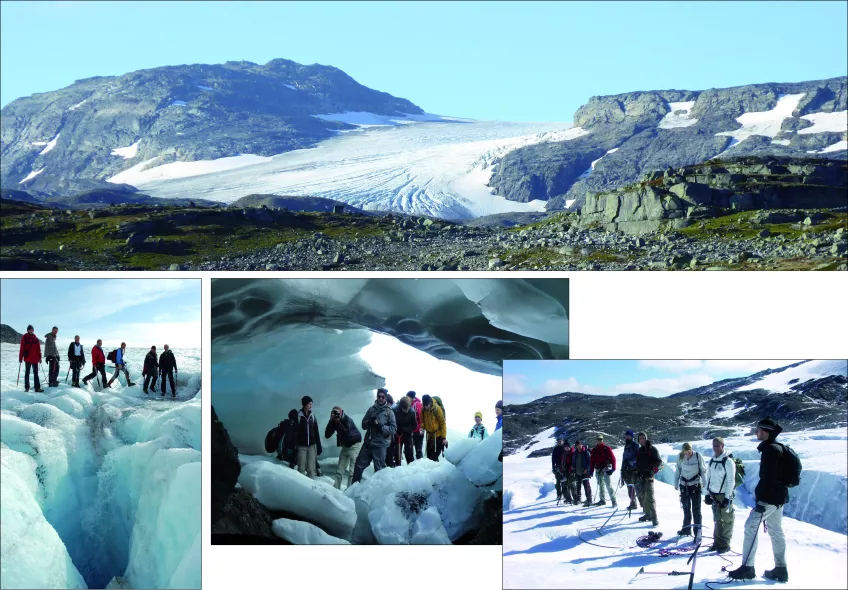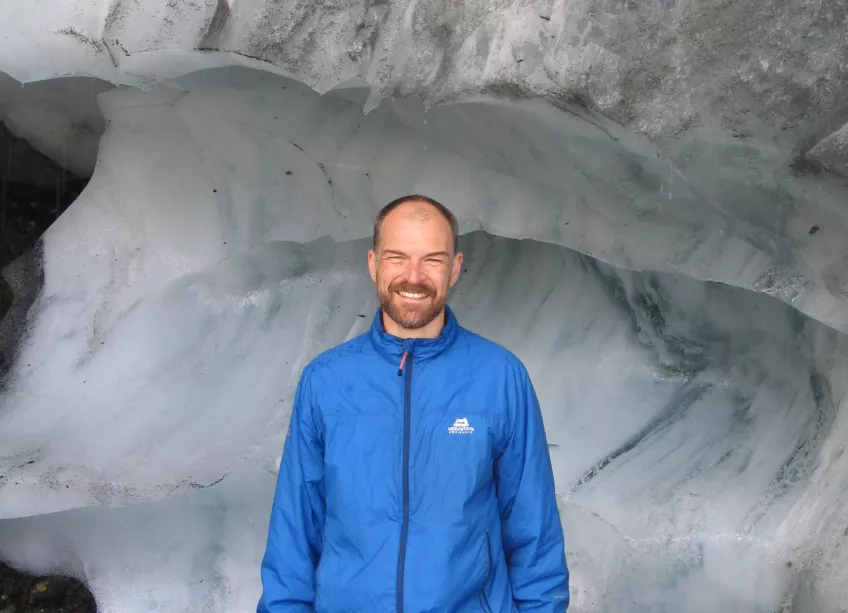GEON05
Glacial sedimentology – Processes, Sediments and Landform Systems, 15 ECTS credits
Sediments produced by ice masses (glaciers up to ice sheets) are among the most variable, complex and enigmatic in the geological record. They are everywhere, because glacial processes have repeatedly affected all of Scandinavia and much of northern and central Europe during the last 2.4 million years. Therefore, glacial and genetically-related sediments and landforms are what we build in, extract resources and our groundwater from, where we clean up contaminants and evaluate environmental impact, among many other things. In short: knowledge of glacial processes and the resulting sediments is indispensable for any geologist, geoscientist or environmental scientist wanting to work in Scandinavia (and elsewhere in formerly-glaciated regions worldwide)!
We start off by studying active glacial processes at two glaciers in northern Sweden (9-day trip to Tarfala Research Station (LINK)). This modern-analogue understanding is then transferred to a formerly-glaciated site (5 days, Ven, Öresund) and a number of regional day trips where we learn how to record and interpret glacial and related sediments systematically. The focus of the training throughout this course is on:
(a) developing a sound, state-of-the-art, scientific approach to the study of glacial sediments (and other geological evidence), and
(b) how this can be applied to practical problems that could be encountered in typical jobs in environmental and geological consultancies after graduation.
These training aims are achieved through a combination of theory (lectures, seminars, flipped lectures, group discussions) and practical applications (observing and recording processes and sediment successions; developing a sampling strategy; analysing samples in the laboratory; synthesising field and laboratory data in report form). Real-world examples and further applications, such as through guest lectures from former students and practitioners, feature heavily throughout the course. Many of these are embedded in ongoing research projects, creating an ideal basis for developing a holistic understanding of both the pure and applied aspects of current glacial research.
This MSc-level course starts with a minimum of prior knowledge, so can, in principle, with a bit of extra reading at the beginning, be taken by anyone who is keen on learning more about glaciers, glacial and related sediments and glacial-geological methods.
General information
This is an elective course at advanced level, suitable for inclusion in a MSc. degree in geology. If you apply for, and is given admission to, the Master´s programme in geology with a specialisation in Quaternary geology (NAGEL KVRT) you will automatically be admitted to GEON05 during the first half of your first study term. The course is taught during the first half of the autumn term.
Application
Period: Autumn semester, first part (HT1), full time studies
Admission requirements: Minimum 90 ECTS credits in Geology or Earth Sciences, including GEOB21-GEOB25, GEOB01-GEOB04 or equivalent. English B (advanced) proficiency.
Application - Non-exchange students
Application - Exchange students
Student Counsellor
Karl Ljung
studievagledare [at] geol [dot] lu [dot] se (studievagledare[at]geol[dot]lu[dot]se)
Resources
Course syllabus (pdf, new tab)
Course literature (pdf, new tab)
Course schedule - Note that schedules are only preliminary until one month before course start.
Canvas
Course analysis (pdf, new tab)



